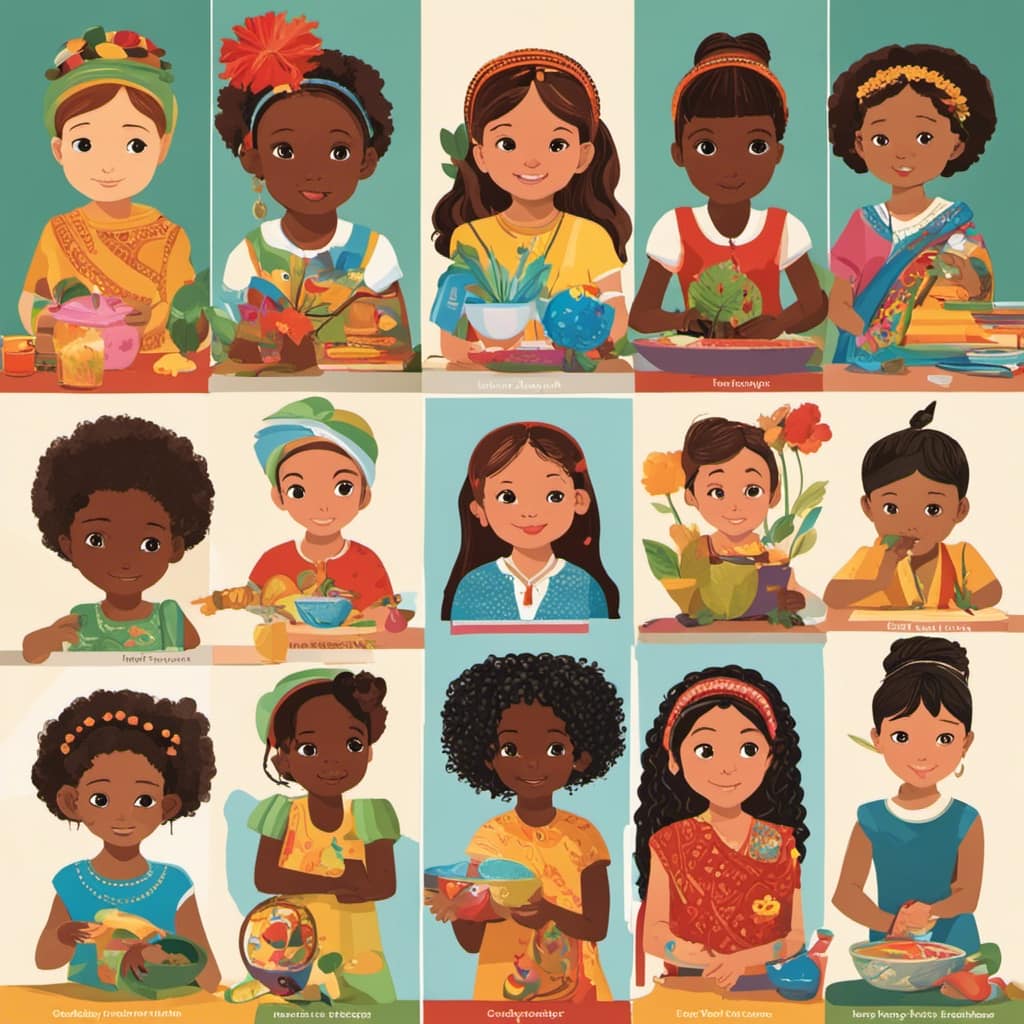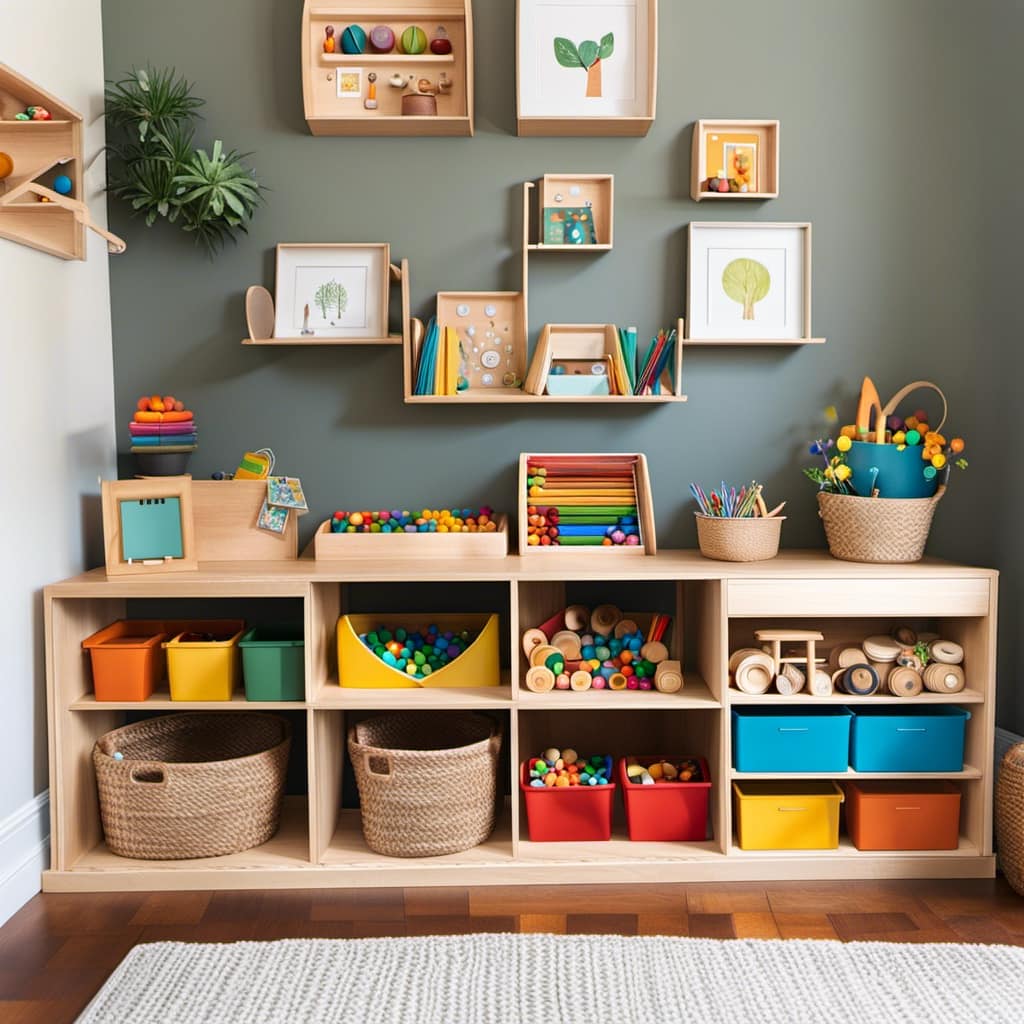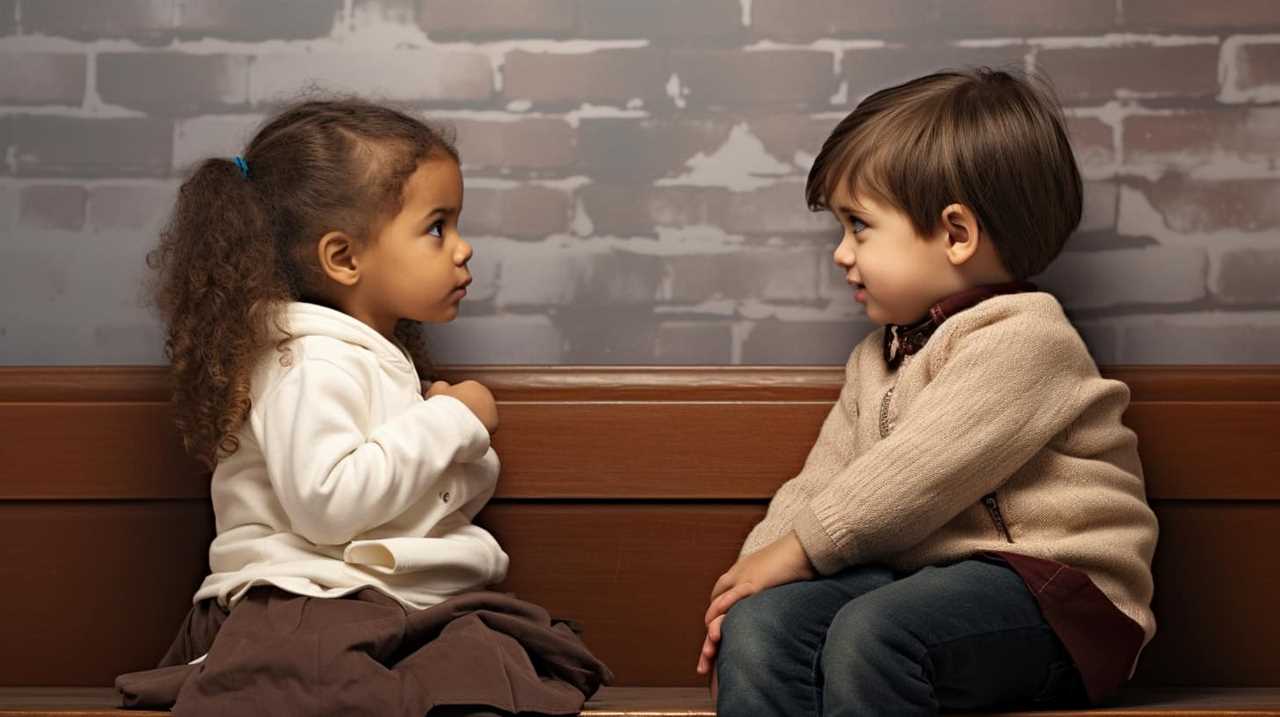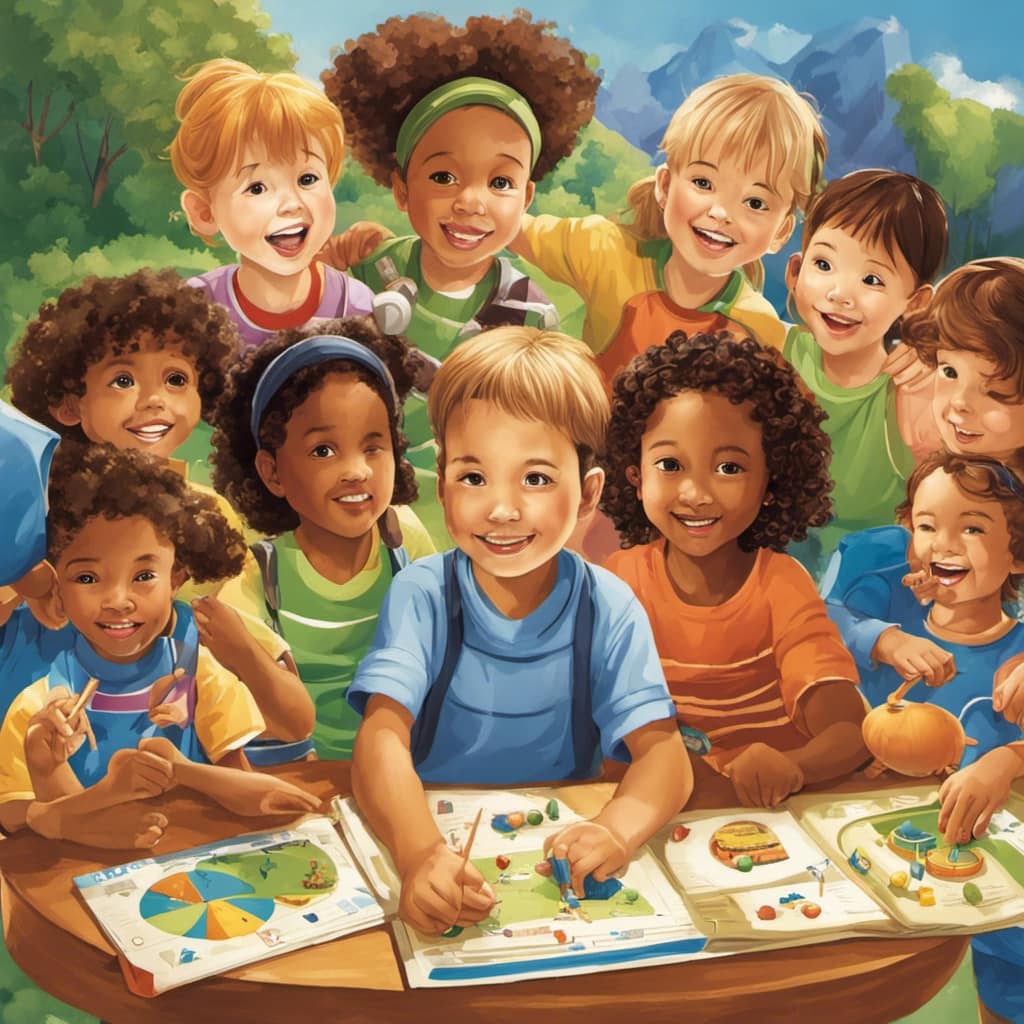As a parent, my main goal is to guarantee that my child gets the best education possible, one that nurtures their independence and individuality. This is why I am fascinated by the Montessori Method.
Imagine a classroom where children have the freedom to choose their own activities, explore at their own pace, and develop critical thinking skills. This child-centered philosophy, developed by Dr. Maria Montessori, empowers children to become confident and independent learners.
In this article, we will delve into the Montessori Approach and discover how it cultivates a love for learning and independence in children.
Key Takeaways
- Montessori education prioritizes child-centered learning and independence.
- The Montessori approach encourages hands-on, practical activities and individualized learning based on the child’s pace and interests.
- Montessori classrooms foster independence, problem-solving skills, and critical thinking.
- Transitioning from concrete to abstract concepts is a key principle in Montessori education, allowing children to deepen their understanding through hands-on experiences and gradual exploration.
The Importance of Child-Centered Learning in Montessori Education
I believe that child-centered learning is crucial in Montessori education because it allows children to take ownership of their learning and develop independence.
Child-centered teaching methods in Montessori schools prioritize the unique needs and capabilities of each child. By promoting self-directed learning, children are empowered to make choices and explore their interests. This approach encourages critical thinking, problem-solving skills, and a lifelong love for learning.
In a child-centered environment, teachers serve as guides and observers, providing personalized attention and guidance. The focus is on the child’s individual learning pace and interests, allowing them to progress at their own speed.
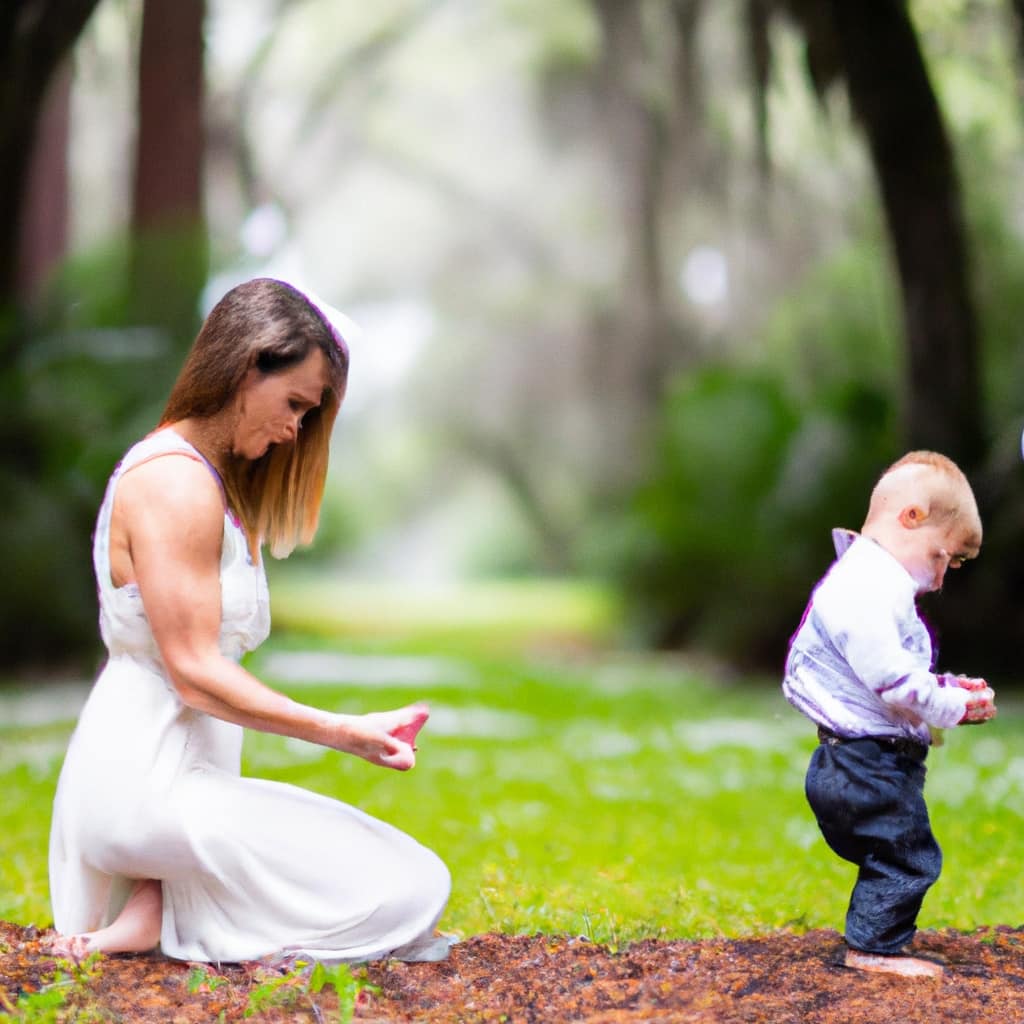
Nurturing Independence in the Montessori Classroom
Encouraging freedom of choice and fostering self-reliance are essential aspects of nurturing independence in the Montessori classroom. In this environment, children are empowered to become independent and confident learners. Here are three ways in which independence is fostered through hands-on learning activities:
-
Self-directed learning: The Montessori classroom supports self-directed learning, allowing children to choose activities and materials based on their interests and needs. This freedom of choice encourages children to take ownership of their learning journey.
-
Problem-solving skills: Hands-on materials in the Montessori classroom promote critical thinking and problem-solving skills. Through practical activities, children learn to overcome challenges, think creatively, and find solutions independently.
-
Self-motivation: By engaging in hands-on learning activities, children develop a sense of curiosity and intrinsic motivation. They are encouraged to explore, discover, and pursue their interests, fostering a lifelong love for learning.
Personalized Learning: Tailoring Education to Each Child’s Needs
Tailoring education to each child’s needs involves creating personalized learning experiences that cater to their unique interests and abilities. Personalized instruction and an individualized curriculum are key components of the Montessori approach. In a Montessori classroom, teachers provide observation and guidance while allowing children the freedom to choose activities and materials. This freedom of choice, combined with hands-on materials that cater to different learning styles and abilities, allows children to progress at their own pace. The table below visually represents the ideas discussed:
| Personalized Instruction | Individualized Curriculum |
|---|---|
| Freedom of choice | Hands-on materials |
| Observation and guidance | Catering to learning styles and abilities |
| Progress at own pace |
From Concrete to Abstract: The Transition in Montessori Education
Transitioning from concrete to abstract concepts in Montessori education allows children to deepen their understanding and make connections to more complex ideas. This transition is facilitated through hands-on experiences and gradual exploration.
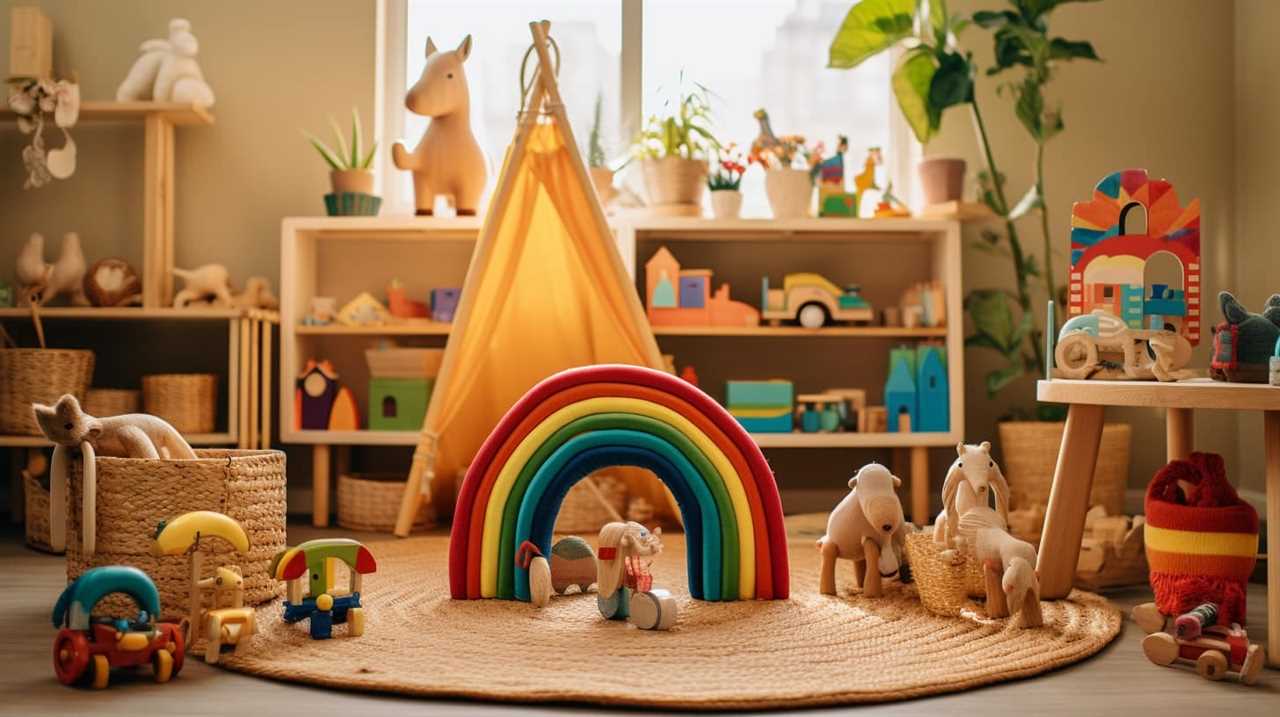
-
Hands-on experiences: Montessori classrooms provide children with a wide range of materials and activities that they can manipulate and explore. This hands-on approach helps children engage their senses and develop a solid foundation of knowledge.
-
Gradual exploration: Montessori education emphasizes a gradual progression from concrete to abstract concepts. Children start with concrete materials that they can touch, feel, and manipulate, such as counting beads or letter tiles. As they develop a strong understanding of these concrete concepts, they are gradually introduced to more abstract ideas, like mathematical operations or reading comprehension.
-
Making connections: By starting with concrete materials and gradually transitioning to abstract concepts, children are able to make connections between different ideas. This helps them develop critical thinking skills and problem-solving abilities, as they learn to apply their knowledge in various contexts.
Overall, the Montessori approach recognizes the importance of hands-on experiences and gradual exploration in guiding children towards a deeper understanding of abstract concepts.
The Benefits of Montessori Education for Children of All Backgrounds
As a teacher in a Montessori classroom, I have witnessed the transformative benefits of this educational approach for children of all backgrounds. Montessori education not only focuses on academic growth but also on the social-emotional development of children. The child-centered learning environment allows students to develop important life skills such as problem-solving, critical thinking, and self-motivation. Through freedom of choice and self-directed learning, children become independent and confident learners. Additionally, Montessori education fosters a love for learning by providing a hands-on, engaging curriculum that caters to individual interests and learning styles. The table below highlights some of the key benefits of Montessori education for children:
| Montessori Education and Social Emotional Development | Montessori Education and Fostering a Love for Learning |
|---|---|
| – Promotes independence and self-reliance | – Encourages active engagement and ownership |
| – Develops problem-solving skills and critical thinking | – Cultivates a lifelong love for learning |
| – Supports the natural development of each child | – Provides a hands-on and engaging curriculum |
| – Empowers children to feel seen, heard, and valued | – Cater to individual interests and learning styles |
The Montessori Approach: Empowering Children to Become Lifelong Learners
Empowering children to become lifelong learners is at the core of the Montessori philosophy. In a Montessori classroom, children are given the tools and freedom to explore their interests and learn at their own pace.

Here are three ways Montessori education empowers children to become lifelong learners:
-
Child-centered learning: Montessori schools prioritize the individual needs and capabilities of each child. This approach allows children to take ownership of their learning and develop a sense of self-motivation.
-
Hands-on experiences: Montessori classrooms are filled with hands-on materials that cater to different learning styles and abilities. By engaging in practical activities, children develop problem-solving skills and critical thinking abilities.
-
Self-directed learning: Montessori education promotes independence and self-reliance. Children are encouraged to make choices and explore their interests, fostering a love for learning that lasts a lifetime.
Through these empowering practices, Montessori education nurtures children to become active, curious, and lifelong learners.
Frequently Asked Questions
How Much Does Montessori Education Typically Cost?
Montessori education typically costs between $750 to $3,000 per month or $7,000 to $40,000 per school year. Affordability may vary, but Montessori schools prioritize the unique needs and capabilities of each child.

What Is the Training and Certification Process for Montessori Teachers?
The training process for Montessori teachers involves specialized courses and hands-on experience. Certification is obtained through recognized organizations. It’s like journeying through a rich landscape of knowledge, honing skills to guide and inspire young minds.
Are There Any Potential Drawbacks or Limitations to the Montessori Approach?
There are potential drawbacks to the Montessori approach, including lack of structure and limited exposure to traditional teaching methods. Critics also question its effectiveness and suggest alternatives like traditional education.
How Does Montessori Education Address the Diverse Needs and Abilities of Students?
Montessori education addresses diverse needs and abilities through individualized instruction and differentiated learning. Students receive personalized attention, allowing them to progress at their own pace and fostering a love for learning.
How Does the Montessori Approach Promote Critical Thinking and Problem-Solving Skills?
In the Montessori approach, critical thinking and problem-solving skills are promoted through promoting independence and cultivating creativity. Children are empowered to make choices, explore hands-on materials, and develop their own solutions.
Conclusion
In conclusion, the Montessori approach to education is a powerful tool for cultivating independent and confident learners. I have witnessed firsthand the transformative impact it has on children.
I remember a little girl in my classroom who was initially shy and hesitant to explore. However, through the Montessori method, she blossomed into a curious and self-reliant student. This metaphorical journey from a closed bud to a blooming flower encapsulates the essence of Montessori education.
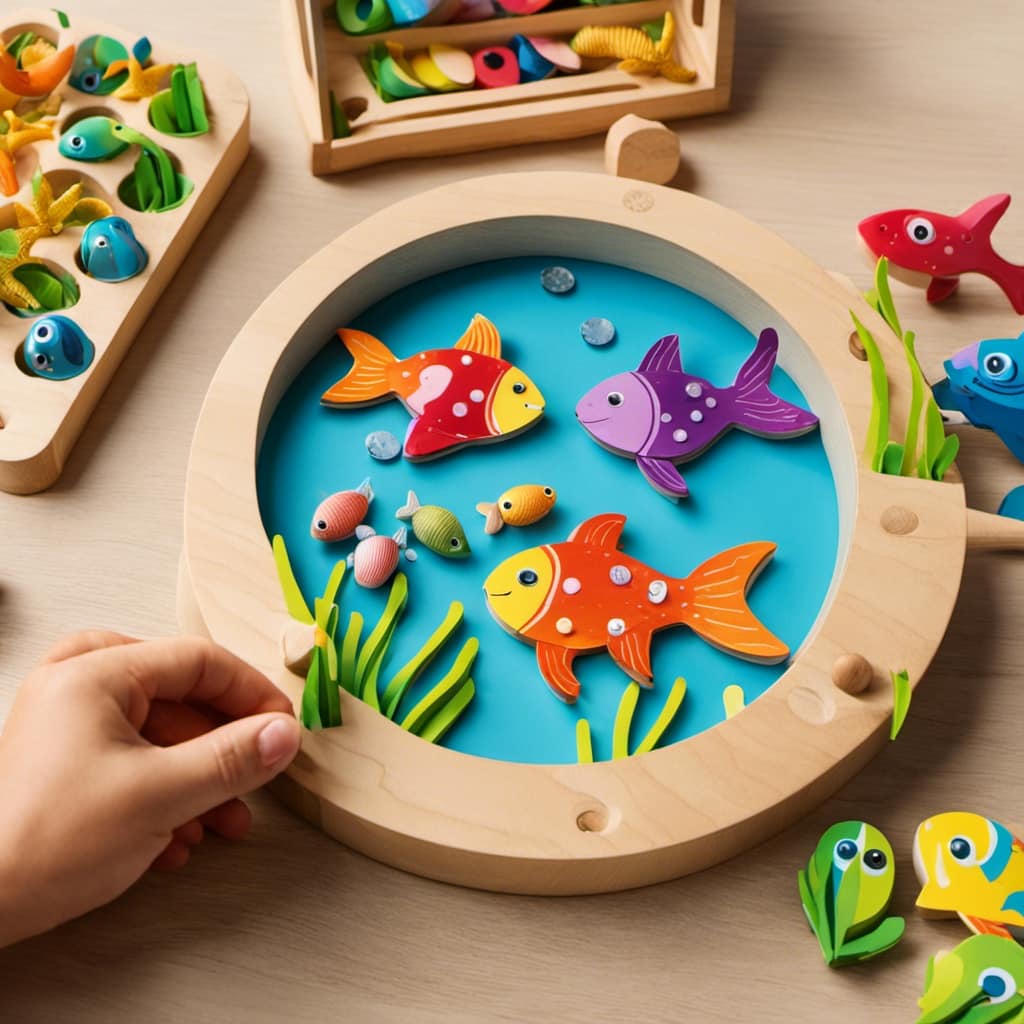
By providing a child-centered environment that fosters independence and personalized learning, Montessori empowers children to become lifelong learners, ready to face any challenge that comes their way.
The data also supports this approach, with studies showing that Montessori education benefits children from all backgrounds and socioeconomic levels. It truly is an approach that unlocks the potential within every child.



